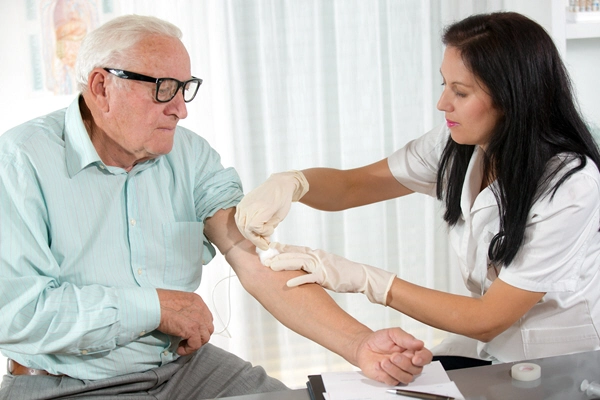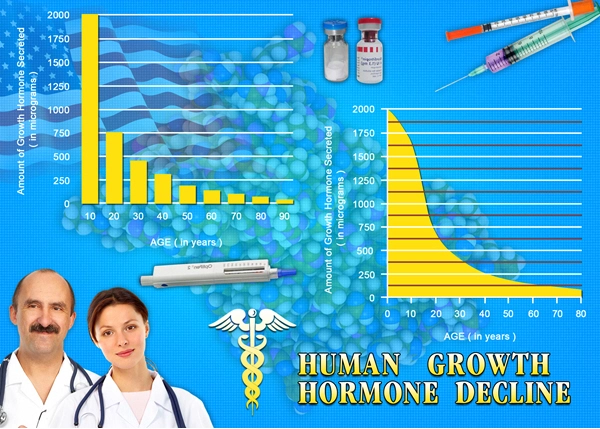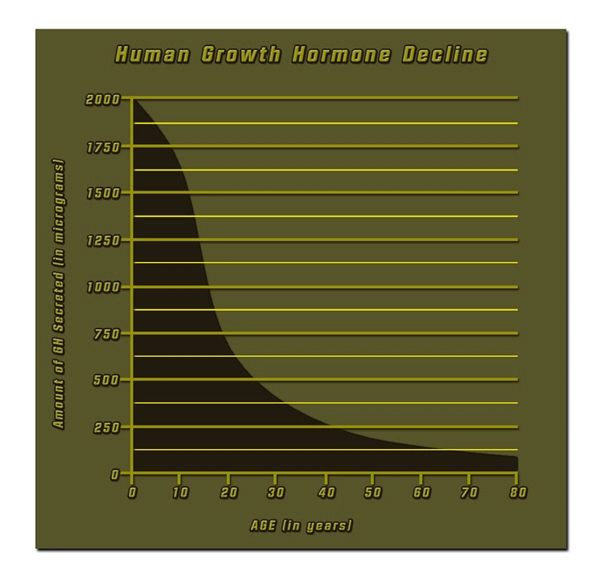Introduction to Endocrine Disorders and Type 2 Diabetes
Endocrine disorders encompass a wide range of conditions that affect hormone production and regulation, which can significantly impact overall health. Among American men, the prevalence of type 2 diabetes is a growing concern, and managing this condition alongside other endocrine disorders presents unique challenges. This article delves into the intricacies of managing endocrine disorders in American men with type 2 diabetes, offering insights and strategies to enhance patient care.
The Intersection of Type 2 Diabetes and Endocrine Disorders
Type 2 diabetes is characterized by insulin resistance and impaired insulin secretion, leading to elevated blood glucose levels. This condition often coexists with other endocrine disorders such as hypothyroidism, hyperthyroidism, and hypogonadism. The interplay between these conditions can exacerbate symptoms and complicate treatment plans. For instance, hypothyroidism can worsen insulin resistance, while hypogonadism may contribute to metabolic syndrome, further increasing the risk of cardiovascular diseases.
Diagnostic Challenges and Considerations
Diagnosing endocrine disorders in men with type 2 diabetes requires a comprehensive approach. Symptoms such as fatigue, weight gain, and sexual dysfunction can be attributed to either condition, making it crucial to conduct thorough hormonal assessments. Routine screening for thyroid function, testosterone levels, and other relevant hormones can aid in early detection and management. Additionally, healthcare providers must be vigilant about potential drug interactions, as medications used to treat diabetes may affect hormone levels and vice versa.
Tailored Treatment Strategies
Effective management of endocrine disorders in men with type 2 diabetes necessitates a personalized treatment plan. Lifestyle modifications, including a balanced diet and regular exercise, are foundational in managing both conditions. For instance, a diet rich in fiber and low in glycemic index can help stabilize blood glucose levels while supporting thyroid function. Similarly, regular physical activity can improve insulin sensitivity and boost testosterone levels.
Pharmacological interventions may also be necessary. Metformin, a common diabetes medication, can be beneficial in managing insulin resistance but should be monitored for its impact on thyroid function. In cases of hypogonadism, testosterone replacement therapy may be considered, though it requires careful monitoring due to potential cardiovascular risks. Collaboration between endocrinologists and primary care physicians is essential to tailor treatments that address the multifaceted nature of these conditions.
Monitoring and Long-term Management
Continuous monitoring is crucial for men with type 2 diabetes and concurrent endocrine disorders. Regular follow-up appointments allow healthcare providers to assess treatment efficacy and make necessary adjustments. Blood glucose levels, HbA1c, thyroid function tests, and testosterone levels should be routinely monitored. Patient education plays a pivotal role in long-term management, empowering men to recognize symptoms of hormonal imbalances and adhere to their treatment regimens.
Psychological and Social Support
The psychological impact of managing multiple chronic conditions should not be underestimated. Men with type 2 diabetes and endocrine disorders may experience increased stress, anxiety, and depression, which can further complicate their health. Access to mental health resources, support groups, and counseling can provide invaluable support. Encouraging open communication with healthcare providers about mental health concerns can lead to more holistic care.
Conclusion: A Multidisciplinary Approach to Care
Managing endocrine disorders in American men with type 2 diabetes requires a multidisciplinary approach that addresses the complex interplay between these conditions. By integrating lifestyle modifications, tailored pharmacological treatments, continuous monitoring, and psychological support, healthcare providers can significantly improve patient outcomes. As the prevalence of these conditions continues to rise, ongoing research and education will be crucial in advancing care and enhancing the quality of life for affected individuals.

- Endocrinology and Sleep: Impact on American Men's Health and Disorders [Last Updated On: March 7th, 2025] [Originally Added On: March 7th, 2025]
- PCOS Challenges and Management in Transgender American Men [Last Updated On: March 17th, 2025] [Originally Added On: March 17th, 2025]
- Dietary Strategies for Optimal Endocrine Health in American Males [Last Updated On: March 18th, 2025] [Originally Added On: March 18th, 2025]
- Vitamin D's Crucial Role in Endocrine Health for American Males [Last Updated On: March 18th, 2025] [Originally Added On: March 18th, 2025]
- Hormonal Shifts in Aging American Men: Endocrinology Insights and Management Strategies [Last Updated On: March 19th, 2025] [Originally Added On: March 19th, 2025]
- Endocrine Health and Cancer Risk in American Men: Hormones, Disruptors, and Prevention Strategies [Last Updated On: March 19th, 2025] [Originally Added On: March 19th, 2025]
- Endocrinology's Impact on Male Sexual Health: Hormones, Disorders, and Holistic Treatment [Last Updated On: March 20th, 2025] [Originally Added On: March 20th, 2025]
- Autoimmune Endocrine Disorders in American Males: Symptoms, Diagnosis, and Treatment Strategies [Last Updated On: March 20th, 2025] [Originally Added On: March 20th, 2025]
- Hormonal Optimization for American Male Athletes: Enhancing Performance Safely [Last Updated On: March 21st, 2025] [Originally Added On: March 21st, 2025]
- Male Infertility and Endocrinology: Hormonal Insights and American Men's Health Strategies [Last Updated On: March 21st, 2025] [Originally Added On: March 21st, 2025]
- Lifestyle Choices Impacting Endocrine Health in American Men: Diet, Exercise, and More [Last Updated On: March 21st, 2025] [Originally Added On: March 21st, 2025]
- Endocrinology's Role in Weight Management for American Males: Hormonal Strategies [Last Updated On: March 21st, 2025] [Originally Added On: March 21st, 2025]
- Chronic Fatigue in Men: Endocrinology's Role and Treatment Strategies [Last Updated On: March 21st, 2025] [Originally Added On: March 21st, 2025]
- Endocrine Disruptors: Impact on American Males' Health and Mitigation Strategies [Last Updated On: March 22nd, 2025] [Originally Added On: March 22nd, 2025]
- Endocrine Health and Prostate Cancer: Insights for American Men [Last Updated On: March 23rd, 2025] [Originally Added On: March 23rd, 2025]
- Hormonal Influences on Men's Skin Health: Testosterone, Estrogen, and Cortisol Effects [Last Updated On: March 23rd, 2025] [Originally Added On: March 23rd, 2025]
- Endocrine Disorders and Autoimmune Diseases in American Men: Challenges and Management [Last Updated On: March 23rd, 2025] [Originally Added On: March 23rd, 2025]
- Managing Endocrine Disorders in Men with Heart Disease: A Comprehensive Approach [Last Updated On: March 23rd, 2025] [Originally Added On: March 23rd, 2025]
- Endocrine Health and Liver Function: Vital for American Males' Well-being [Last Updated On: March 23rd, 2025] [Originally Added On: March 23rd, 2025]
- Endocrinology and Kidney Health: Critical Insights for American Men's Well-being [Last Updated On: March 24th, 2025] [Originally Added On: March 24th, 2025]
- Endocrinology's Impact on Joint Health in American Men: Hormones and Mobility [Last Updated On: March 24th, 2025] [Originally Added On: March 24th, 2025]
- Gout in American Males: Endocrine Influences and Multidisciplinary Management Strategies [Last Updated On: March 24th, 2025] [Originally Added On: March 24th, 2025]
- Endocrine Health and Vision: Impacts on American Males [Last Updated On: March 24th, 2025] [Originally Added On: March 24th, 2025]
- Endocrine Health and Mental Well-being in American Males: A Comprehensive Overview [Last Updated On: March 24th, 2025] [Originally Added On: March 24th, 2025]
- Endocrine Health Impacts Respiratory Function in American Males: Insights and Management [Last Updated On: March 24th, 2025] [Originally Added On: March 24th, 2025]
- Endocrine Health's Impact on Hearing in American Males: Prevention and Management [Last Updated On: March 24th, 2025] [Originally Added On: March 24th, 2025]
- Alcohol's Impact on Endocrine Function and Health in American Males [Last Updated On: March 24th, 2025] [Originally Added On: March 24th, 2025]
- Hormonal Influences on Muscle Health in American Males: Testosterone, GH, IGF-1, Cortisol [Last Updated On: March 24th, 2025] [Originally Added On: March 24th, 2025]
- Exploring Endocrinology's Role in Treating ADHD in American Males [Last Updated On: March 25th, 2025] [Originally Added On: March 25th, 2025]
- Smoking's Impact on Endocrine Health in American Men: Risks and Cessation Strategies [Last Updated On: March 25th, 2025] [Originally Added On: March 25th, 2025]
- Endocrinology's Crucial Role in Treating Male Eating Disorders in the U.S. [Last Updated On: March 25th, 2025] [Originally Added On: March 25th, 2025]
- Hormonal Imbalances and Novel Endocrinological Treatments for Male Anxiety [Last Updated On: March 25th, 2025] [Originally Added On: March 25th, 2025]
- Hormonal Impacts on Hair Health in American Men: Androgens, Lifestyle, and Treatments [Last Updated On: March 25th, 2025] [Originally Added On: March 25th, 2025]
- Exploring the Impact of Hormonal Imbalances on Male Depression in the USA [Last Updated On: March 25th, 2025] [Originally Added On: March 25th, 2025]
- Sleep's Crucial Role in Endocrine Health for American Males [Last Updated On: March 26th, 2025] [Originally Added On: March 26th, 2025]
- Managing Endocrine Disorders in American Men with Neurological Conditions: Strategies and Insights [Last Updated On: March 26th, 2025] [Originally Added On: March 26th, 2025]
- Stress Impact on Male Endocrinology: HPA Axis, Hormones, and Management Strategies [Last Updated On: March 26th, 2025] [Originally Added On: March 26th, 2025]
- Endocrine Disorders in Men: Impact on Eye Health and Management Strategies [Last Updated On: March 26th, 2025] [Originally Added On: March 26th, 2025]
- Hormonal Influences on Men's Oral Health: Insights and Management Strategies [Last Updated On: March 27th, 2025] [Originally Added On: March 27th, 2025]
- Endocrine Disorders in American Men: Impact on Skin Health and Management Strategies [Last Updated On: March 27th, 2025] [Originally Added On: March 27th, 2025]
- PTSD in American Males: Exploring Endocrinological Interventions and Treatment Integration [Last Updated On: March 27th, 2025] [Originally Added On: March 27th, 2025]
- Endocrine-Gastrointestinal Interplay: Management Strategies for American Men [Last Updated On: March 28th, 2025] [Originally Added On: March 28th, 2025]
- Hormonal Imbalances and Foot Health: A Guide for American Men [Last Updated On: March 28th, 2025] [Originally Added On: March 28th, 2025]
- Hormonal Imbalances and Innovative Endocrinological Treatments for Male Insomnia in the USA [Last Updated On: March 28th, 2025] [Originally Added On: March 28th, 2025]
- Exercise Impact on Endocrine System in American Males: Hormonal Changes and Health Benefits [Last Updated On: March 28th, 2025] [Originally Added On: March 28th, 2025]
- Endocrine-Digestive Health Link: Hormones, Diet, and Exercise for American Males [Last Updated On: March 28th, 2025] [Originally Added On: March 28th, 2025]
- Hormonal Balance and Immune Health in American Men: A Comprehensive Guide [Last Updated On: March 28th, 2025] [Originally Added On: March 28th, 2025]
- Endocrine Health Impacts on Nail Conditions in American Males: Insights and Management [Last Updated On: March 29th, 2025] [Originally Added On: March 29th, 2025]
- Nutrition's Impact on Endocrine Health in American Males: Macronutrients, Micronutrients, and Diets [Last Updated On: March 29th, 2025] [Originally Added On: March 29th, 2025]
- Caffeine's Impact on Endocrine Function in American Males: Benefits and Risks [Last Updated On: March 30th, 2025] [Originally Added On: March 30th, 2025]
- Endocrinology's Role in Enhancing Bipolar Disorder Treatment for American Males [Last Updated On: March 30th, 2025] [Originally Added On: March 30th, 2025]
- Endocrine Disorders and Ear Health in American Men: A Holistic Management Approach [Last Updated On: April 1st, 2025] [Originally Added On: April 1st, 2025]
- Hormonal Impacts on Nasal Health in American Men: Insights and Management [Last Updated On: April 3rd, 2025] [Originally Added On: April 3rd, 2025]
- Hydration's Vital Role in Endocrine Health for American Males: A Comprehensive Overview [Last Updated On: April 3rd, 2025] [Originally Added On: April 3rd, 2025]
- Endocrine Health's Impact on Hand Health in American Males: A Comprehensive Analysis [Last Updated On: April 3rd, 2025] [Originally Added On: April 3rd, 2025]
- Endocrine System's Impact on Throat Health in American Males: Symptoms and Management [Last Updated On: April 6th, 2025] [Originally Added On: April 6th, 2025]
- Hormonal Imbalances and Cardiovascular Health in American Men: A Comprehensive Overview [Last Updated On: April 7th, 2025] [Originally Added On: April 7th, 2025]
- Managing Endocrine Disorders and Lung Health in American Men: A Holistic Approach [Last Updated On: April 7th, 2025] [Originally Added On: April 7th, 2025]
- Endocrinological Interventions Enhance Male Schizophrenia Treatment in the USA [Last Updated On: April 8th, 2025] [Originally Added On: April 8th, 2025]
- Endocrine System's Impact on Blood Health in American Males: A Comprehensive Guide [Last Updated On: April 9th, 2025] [Originally Added On: April 9th, 2025]
- Hormonal Influences on Brain Health and Cognitive Function in American Men [Last Updated On: April 9th, 2025] [Originally Added On: April 9th, 2025]
- Dietary Supplements' Impact on Endocrine Health in American Males: Risks and Benefits [Last Updated On: April 9th, 2025] [Originally Added On: April 9th, 2025]
- Managing Endocrine Disorders in American Men with Kidney Disease: A Collaborative Approach [Last Updated On: April 10th, 2025] [Originally Added On: April 10th, 2025]
- Mental Health's Impact on Endocrine Function in American Men: A Comprehensive Analysis [Last Updated On: April 10th, 2025] [Originally Added On: April 10th, 2025]
- Endocrine and Nerve Health in American Males: Hormones, Disorders, and Lifestyle Impact [Last Updated On: April 11th, 2025] [Originally Added On: April 11th, 2025]
- Exploring Endocrinology's Role in Treating Male Autism in the U.S. [Last Updated On: April 12th, 2025] [Originally Added On: April 12th, 2025]
- Exploring Endocrinology's Role in Managing Male OCD: A New Treatment Frontier [Last Updated On: April 15th, 2025] [Originally Added On: April 15th, 2025]
- Managing Endocrine Disorders and Heart Health in American Men: A Holistic Approach [Last Updated On: April 15th, 2025] [Originally Added On: April 15th, 2025]
- Endocrinology's Impact on Bone Health in American Men: Hormones and Holistic Care [Last Updated On: April 16th, 2025] [Originally Added On: April 16th, 2025]
- Endocrine Disorders Impact on Muscular Health in American Men: Diagnosis, Treatment, and Management [Last Updated On: April 16th, 2025] [Originally Added On: April 16th, 2025]
- Hormonal Therapies Enhance ADD Management in American Males: An Endocrinological Approach [Last Updated On: April 17th, 2025] [Originally Added On: April 17th, 2025]
- Endocrinology's Role in Treating Male Eating Disorders: A Comprehensive Approach [Last Updated On: April 18th, 2025] [Originally Added On: April 18th, 2025]
- Endocrine Health and Liver Function: Critical Insights for American Males' Well-being [Last Updated On: April 18th, 2025] [Originally Added On: April 18th, 2025]
- Endocrine System's Impact on Joint Health in American Males: Hormones and Lifestyle Factors [Last Updated On: April 18th, 2025] [Originally Added On: April 18th, 2025]
- Aging and Endocrine Health in American Males: Hormonal Changes and Management Strategies [Last Updated On: April 19th, 2025] [Originally Added On: April 19th, 2025]
- Hormonal Influences on Skin Health in American Men: Androgens, Cortisol, Thyroid, Insulin [Last Updated On: April 19th, 2025] [Originally Added On: April 19th, 2025]
- Lifestyle Impact on Endocrine Health in American Males: Diet, Exercise, and Stress Management [Last Updated On: April 20th, 2025] [Originally Added On: April 20th, 2025]



List of USA state clinics - click a flag below for blood testing clinics.
Word Count: 569



















































